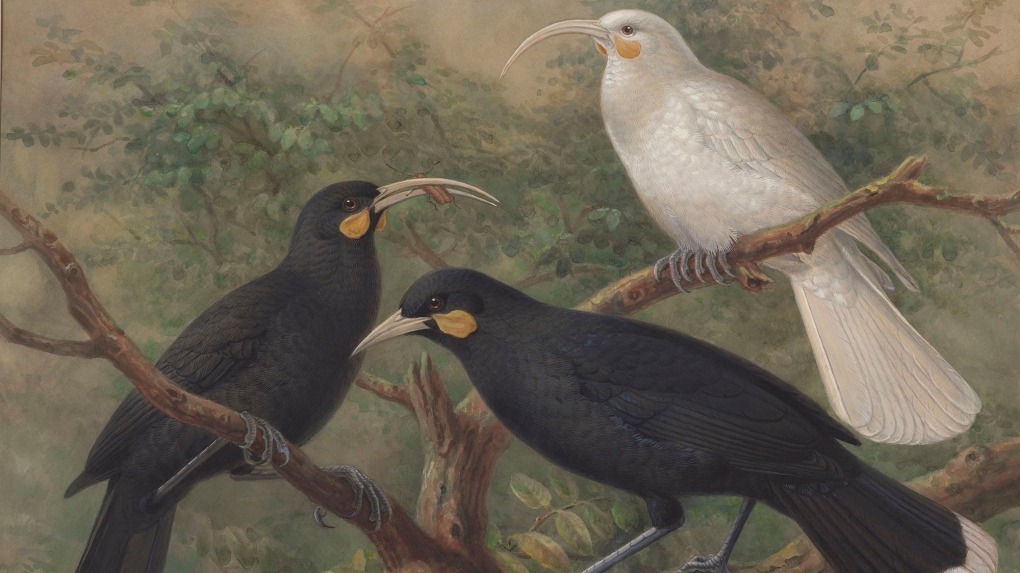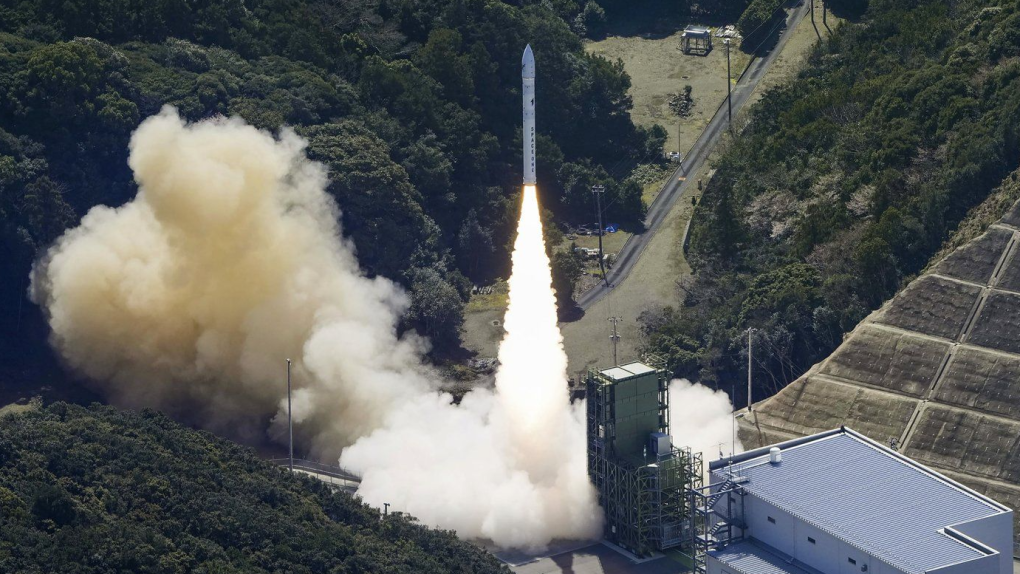A feather from a long-extinct New Zealand bird has set a record after selling for $46,521 NZD (about US$28,400), the auction house handling the sale has said.
The huia was last officially spotted in the early 20th century and its feathers have previously sold for up to $8,400 NZD (about US$5,100), according to Webb’s Auction House.
The huia bird feather, which was expected to sell for up to $3,000 NZD (US$1,830), smashed the estimate on Monday to become the world’s most expensive feather ever sold, Webb’s Auction House said.
“This rare huia feather is a beautiful example of Aotearoa’s natural history and reminds us of the fragility of our ecosystem,” Leah Morris, head of decorative arts at the Auckland-based auction house, said in a statement.
‘Lethal popularity’
A member of the wattle-bird family, the huia was prized by many people – ultimately proving fatal for the species.
For Maori, the bird’s feathers were a mark of high status and the distinctive, white-tipped plumage were used for ceremonial headdresses. Only those of chiefly rank were permitted to wear huia feathers in their hair or whole skins in their ears, according to the Museum of New Zealand.
The feathers were often traded for other valuable goods or given as gifts to demonstrate friendship and respect, the auction house said.
European New Zealanders also came to see the huia as a symbol of prestige. They used the animal’s feathers for fashion accessories and stuffed huia were mounted as decoration in wealthy homes, according to the museum.
The museum explains that Maori and European hunters killed the bird in “great numbers” during the 19th century, selling the skin to collectors and fashion merchants.
The huia’s “lethal popularity” reportedly grew even more when the Duke and Duchess of York were photographed wearing feathers in their hats during a trip to New Zealand in 1901.
“People kind of had a frenzy and decided that everyone wanted a huia feather,” said Morris of the event.
Attempts made by scientists in the early 1900s to conserve the remaining huia failed. A government plan to ship the birds to offshore islands resulted in those who collected the birds to sell them as dead specimens, according to the museum, adding It was more “profitable” than keeping them alive.
The auction house said that all prospective buyers were required to provide a permit from New Zealand’s Ministry for Culture and Heritage in advance of Monday’s sale.
As an object of national importance, the feather could only be purchased by registered collectors and cannot leave the country without permission from the ministry.
The sale follows that of a Victorian pair of taxi-dermied huia which sold for $457,704 (about US$280,000) at a U.K. auction last year, according to the auction house.




